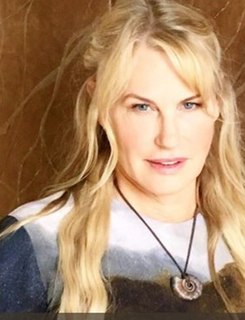A Quote by Abraham Lincoln
The good old maxims of the Bible are applicable, and truly applicable to human affairs, and in this as in other things, we may say here that he who is not for us is against us; he would gathereth not with us scattereth.
Related Quotes
God has given us a revelation in regard to celestial marriage. I did not make it. He has told us certain things pertaining to this matter, and they would like us to tone that principle down and change it and make it applicable to the views of the day. This we cannot do; nor can we interfere with any of the commands of God to meet the persuasions or behests of men. I cannot do it, and will not do it.
Science, by itself, cannot supply us with an ethic. It can show us how to achieve a given end, and it may show us that some ends cannot be achieved. But among ends that can be achieved our choice must be decided by other than purely scientific considerations. If a man were to say, "I hate the human race, and I think it would be a good thing if it were exterminated," we could say, "Well, my dear sir, let us begin the process with you." But this is hardly argument, and no amount of science could prove such a man mistaken.
When we go to the Bible we should keep in mind that the basic principles of the Bible are taught by God, but written down by human beings deprived of modern day knowledge. So there is some fallibility in the writings of the Bible. But the basic principles are applicable to my life and I don't find any conflict among them.
Sad, indeed, would the whole matter be if the Bible had told us everything God meant us to believe. But herein is the Bible greatly wronged. It nowhere lays claim to be regarded as the Word, the Way, the Truth. The Bible leads us to Jesus, the inexhaustible, the ever-unfolding Revelation of God. It is Christ "in whom are hid all the treasures of wisdom and knowledge," not the Bible, save as leading to Him.
The acceptance of ambiguity implies more than the commonplace understanding that some good things and some bad things happen to us. It means that we know that good and evil are inextricably intermixed in human affairs; that they contain, and sometimes embrace, their opposites; that success may involve failure of a different kind, and failure may be a kind of triumph.
When we are young the idea of death or failure is intolerable to us; even the possibility of ridicule we cannot bear. But we have also an unconquerable faith in our own stars, and in the impossibility of anything venturing to go against us. As we grow old we slowly come to believe that everything will turn out badly for us, and that failure is in the nature of things, but then we do not much mind what happens to us one way or the other. In this way a balance is obtained.

































